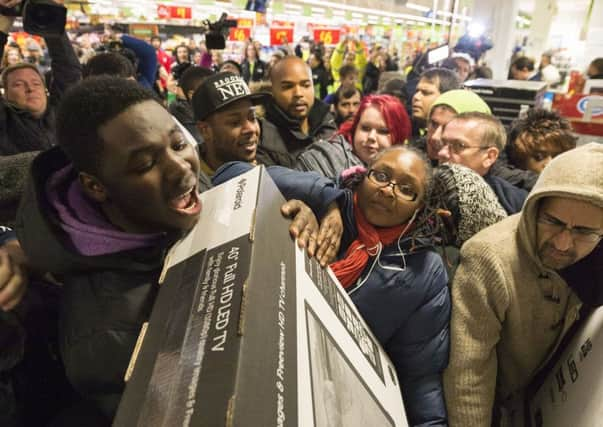Half Black Friday deals were cheaper at other times, inquiry finds


A report from Which? found that 49 per cent of products “on offer” were actually cheaper in the months before or after Black Friday and claimed that some retailers may be breaking government pricing guidelines.
Which? tracked deals on 20 popular tech gadgets and home appliances on Amazon, AO, Argos, Currys and John Lewis for the three months before and two months after Black Friday last year. The results show only 51 per cent of the products were cheapest on Black Friday itself, with the remainder cheaper before or after the day.
Advertisement
Hide AdAdvertisement
Hide AdLess than one in ten discounts were one-day only offers, where the Black Friday price was cheaper than on any other day. Around one in ten were cheaper at some point in the three months leading up to Black Friday and four in ten were cheaper in the weeks after Black Friday.
Pete Moorey, head of campaigns at Which? said: “If you’re thinking about starting your Christmas shopping around Black Friday, do your research as some ‘deals’ may not be all they’re cracked up to be.”
In addition, Which? uncovered numerous examples of offers by retailers AO and Currys that appeared to inflate the “was” price to make deals look better than they actually are. When promoting a discount like “was £100, now £50”, the “was” price should be the most recent price the item was sold at for 28 consecutive days or more, and not a price that is more than six months old.
One Samsung TV sold by AO for £299 - a “discount” of £200 - was often available for £289 during November and late October.
Meanwhile, a Hoover tumble dryer sold at £200 on Black Friday alongside a claim of “When they’re gone, they’re gone” on its website.
The Which? report said: “But this ‘offer’ – really a permanent discount – remained at £200 for two more months, until the end of January.”
Another example at Currys was a Samsung washing machine. The report said: “Anyone buying this model for £1,149 on Black Friday must have been pretty happy with Currys’ claimed saving of £450. Let’s hope they didn’t check back three days later when the price was cut to £1,079 – where it remained throughout January.”
Leigh Sparks, professor of retail studies at Stirling University, said: “Customers should always ask themselves whether something is a real reduction or bargain, or if it is not.”
Advertisement
Hide AdAdvertisement
Hide AdThe Which? investigation tracked prices every day for three months before and two months after Black Friday. The results showed that only 90 out of 178 deals tracked were cheapest on Black Friday. Currys claimed that keeping prices low after an event like Black Friday is good for shoppers.
Likewise, AO said that some products may remain on promotion beyond Black Friday, adding that this gives customers “great deals beyond just the one day a year”.